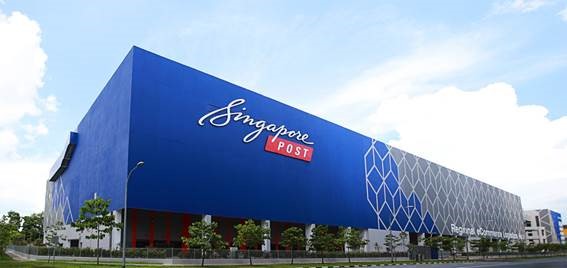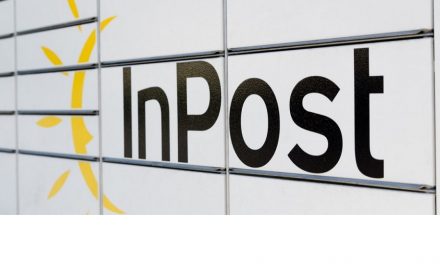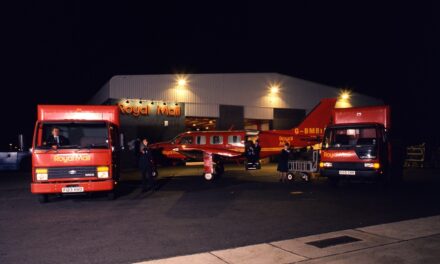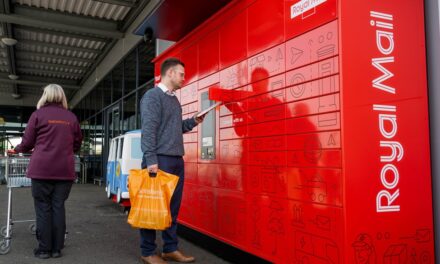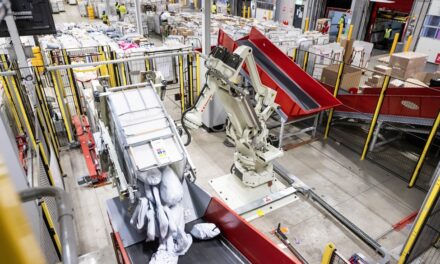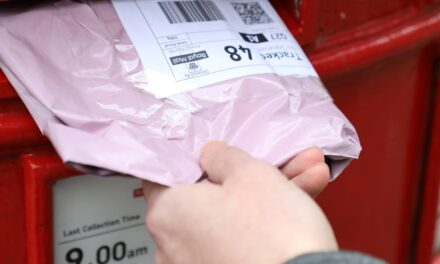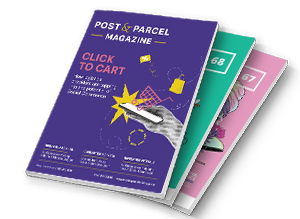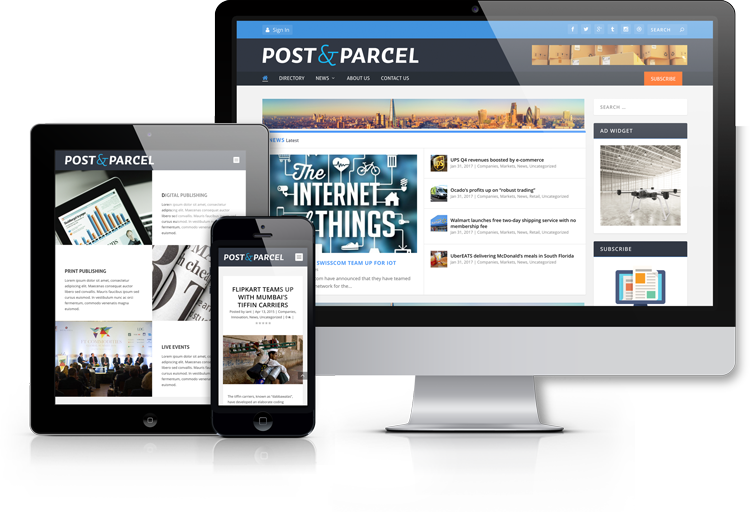
The McCue Interview: Robin Dargue, Group CIO, Royal Mail
Robin Dargue has long been known as something of a high-flyer in CIO circles – and that's not just about his hobby of flying planes (more of which later). After hitting the heady heights of CIO for drinks giant Diageo aged just 36, he has now taken on what most people would view as a daunting challenge at Royal Mail.
What attracted Dargue to the job? A GBP 2bn technology-based business transformation programme aimed at making the organisation leaner and able to compete better in the de-regulated postal market – essentially it's about saving a somewhat unwieldy 360-year-old organisation against new competition.
Dargue says: "This is one of the largest transformations in the UK, if not Europe – a business transformation. It is in everybody's interests that we do transform Royal Mail. Royal Mail Group is 360 years old and I think we have a duty to improve the business and get it in a great state to pass on to future generations and the concept that there wouldn't be a Royal Mail Group I don't think is acceptable."
Dargue, just voted top CIO in the UK, has been in the CIO post six months and replaces the now retired David Burden – who has gone off to travel the world – but the structure of the role has changed slightly. Essentially Dargue has two CIO hats.
Firstly he is group CIO for the Royal Mail Group – which includes General Logistics Systems, Parcelforce, Post Office Ltd and Royal Mail Letters. With that hat he sits on the Royal Mail Group executive committee and the individual CIOs of the group businesses report into him.
Then, with his other hat he is also CIO for Royal Mail Letters – the biggest company in the group, accounting for around GBP 7bn of Royal Mail's overall GBP 9bn revenue. As CIO of Royal Mail Letters he also sits on that individual business' executive committee.
"Technology sits at the right tables," he says.
The scale of Royal Mail – 80 million letters and packets handled each day, 24 million customers, 200,000 employees – is what makes the transformation programme daunting and Dargue admits in something of an understatement: "There's a lot to do."
He's full of praise for the work done by his predecessor but says there is now a shift in emphasis away from simply keeping the lights on as cheaply as possible.
"The team that had been in place had been doing a superlative job to keep the ship afloat and for little or no money, because at the time Royal Mail was losing a vast amount of money per year."
But a different set of skills is now required to underpin the transformation programme.
Dargue explains: "So, for example, you need to upweight your project management skills, you need to upweight your architecting skills, you need to upweight your information security skills. So a lot of the change we've got going on at the moment is have we got the right skills to underpin the transformation, and that's what we're doing at the moment."
Dargue maintains he wants those skills to be Royal Mail Group people and that he will get that talent but in the short term he has brought in interim resources to fill that gap.
"There is some great talent out there that is excited about the prospect of coming to join us," he says.
The big challenge for the Letters business – which handles 84 million items each night – is increased automation for better efficiency, and increased supply chain visibility to both track items and underpin new customer services.
Dargue says: "We need to create the ability to know at any point in time every one of those items is. Where is it on its journey, what mail bag, what mail tray, what truck is it in, where is that truck on that journey, when will it arrive at its destination? That for me is a big 'missing'. In the past we've done lots of point-to-point solutions but we've not done holistic supply chain visibility."
Royal Mail is just speccing out the first phase of this three- to four-year supply chain programme.
"For me all roads lead to architecture at the moment. Have we architected where we want to be and then as each project and programme comes up we're ensuring the whole is greater than the sum of the parts because in the past it hasn't been. It's been little point by point solutions to do a singular task."
There is also a big project to replace what Dargue calls the Royal Mail Group's "antiquated" HR systems used to pay and manage 200,000 employees.
Dargue says: "The thing that amazes me here is scale. Whatever you touch there's large numbers involved."
The scale of that task keeps Dargue extremely busy, with regular 12-hour days starting at 7.30 in the morning through to 7.30 in the evening. Not surprisingly, coffee helps keep him on his toes.
"My day starts with caffeine, with more in the middle of the day and more at the end of the day. It's very bad for me, I'm a caffeine junkie but there you go," he jokes.
Dargue tries to manage the demands on his time effectively by getting out into the company and meeting people actually doing things at the coal face.
"That's what I prefer to do. You do end up if you're not careful being caught up in the meetings and the schedules that have to exist anyway. I don't particularly like policing things. I do like the beginning, discussing the art of the possible."
Dargue's IT career path started after his sister convinced him to study computing over his preferred subjects of English and History. His first job was at Logica and then he joined Mars, a company where many of today's top CIOs and business execs passed through.
"It is a good breeding ground, a very unique company. There's quite a lot of Mars Inc alumni walking around," he says.
Dargue stayed in consumer goods and joined drinks giant Diageo as European IS director just after the merger between Grand Metropolitan and Guinness United Distillers, with the company looking for people to complete the merger and get them through the Y2K programme.
He then headed up Europe and Asia Pacific for Diageo, had a little sojourn into the US when the company bought Seagram, and then he became CIO and board member aged just 36.
There's just a few more grey hairs now and Dargue jokes: "I think I've aged since then."
The biggest thing for him on becoming group CIO at Diageo was actually not his relative youth, but the huge accountability that suddenly comes with stepping up to that kind of group CIO and board-level role.
Dargue says: "There isn't anybody else whose fault it is. The buck stops there. People do expect things of you. The other thing I learnt is once you are there the only person to push or raise the bar of the function day in, day out is yourself."
Among his achievements at Diageo was a wall-to-wall global SAP programme. "Diageo was a global company and wanted to leverage its size and scale, therefore we had to connect up all the processes around the world and that's what drove the SAP programme. It was very clear why we were doing it. It was successful on the whole it did what it said it would do on the tin," he says.
But more than that he says he's proud of building an IT function at Diageo that was respected.
"We had some phenomenal people, we delivered some phenomenal programmes and projects and we did what we said we would do. I think once you've got a strategy and you've got a delivery vehicle in place as long as you just keep pounding away at it, it's quite easy to make a difference."
Away from the office Dargue indulges his passions for flying – he takes to the sky in a vintage Beech 35 built in 1957 – and diving.
"I always wanted to be pilot, even at school. There are two things I like about it. Once you've taken off you are coming back down one way or the other, either successfully or unsuccessfully but you are coming back down. The other one is it's quite a mental workout, you have to do a lot of things simultaneously so it's a good distraction from work," he says.
Back on terra firma and Dargue attributes his rise to the top to his experience on the ground.
One piece of advice he gives is to pick your battles. He says: "I had a very good colleague who asked why I fought every battle and he said 'why do you do it – has this fight you've taken on got anything to do with the goal you're trying to achieve? If not, why do you care?' So be focused on what you're trying to achieve and not be sidetracked into little fights and debates."
But more importantly is getting the right people behind you, says Dargue.
"It's all about people, it's not about the latest gizmo, it's not about the latest technology, it's not about the latest project, it's about the people and have you got the right people with the right skills to do what you're going to do. That was one huge learning – start with the people."

